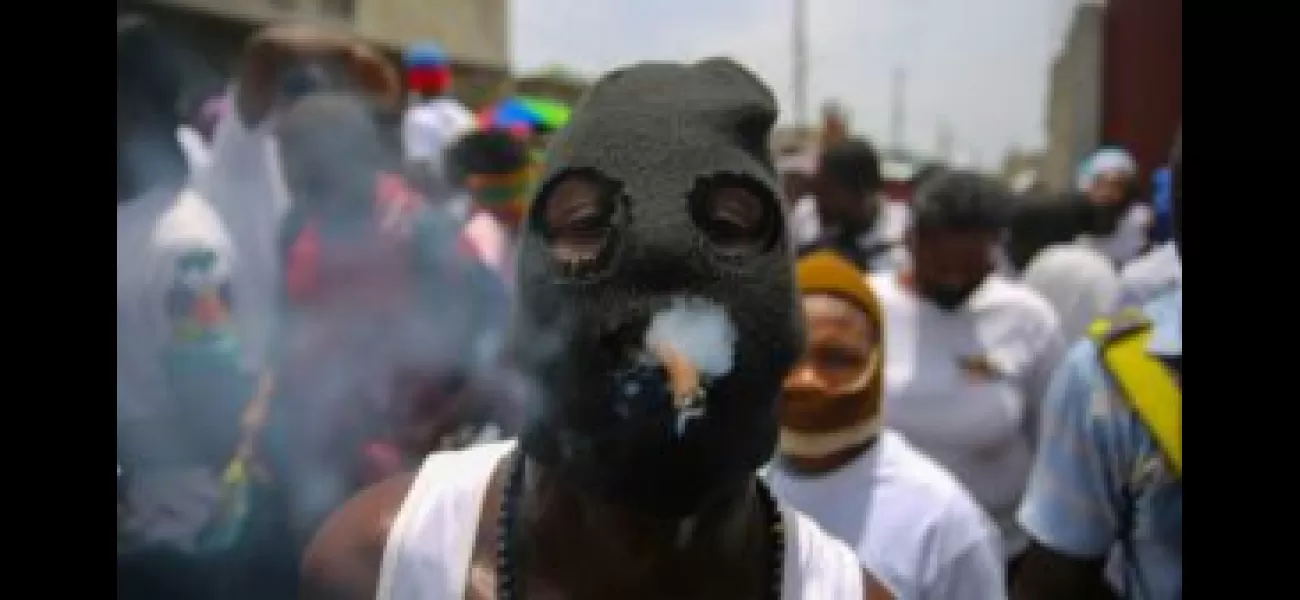Protesters demand action to stop gang violence in Haiti.
Protestors demand a plan to address rising gang violence and corruption in Haiti.
July 19th 2023.

On July 13th, thousands of people from over 60 countries took to the streets to protest the gang violence that has been ravaging Haiti, as reported by NBC News. Political violence has been a major issue for the Caribbean nation for many decades, however, it has taken a turn for the worse following the assassination of President Jovenel Moïse in 2021. This has led to a collapse of the government, with the remaining senators leaving their positions and no interim president in place. With law enforcement corruption rife, gangs have been allowed to operate freely.
Gregory Toussaint, pastor at Miami’s Tabernacle of Glory Church, commented on the situation, stating “The fact that there is no government in power, it means that they could simply multiply and become stronger.” According to the U.N.’s Office for the Coordination of Humanitarian Affairs, gangs now control around 80% of the government. UNICEF reports that this has caused 1.5 million Haitians to have reduced access to education and health services, compounding the country’s already dire economic situation.
The movement to protest gang violence has been widely supported across many countries, with people from all national and cultural backgrounds taking part. Xamayla Rose, who is Jamaican, participated in the Relief for Haiti March in New York. She has been surrounded by Haitian immigrants in her Brooklyn neighborhood, and she wanted to show her support for the cause.
Demonstrators are now calling on the Biden administration to continue their humanitarian program and for Congress to take action against the gangs, as well as to expose any political figures involved. To this end, Gregory Toussaint has launched a petition on his platform Shekinah.fm, which to date has gained almost 130,000 signatures, to support the Haiti Criminal Collusion Transparency Act which would require the Department of State to provide annual reports on criminal gangs and political and economic elites in Haiti.
Toussaint believes that Haiti should devise a long-term plan to address the issue, similar to the Rwandan government’s approach to rebuilding the nation after the 1994 genocide. He suggests a 25-year plan to work towards what the country should look like in 2050, starting in 2025. Despite the grim situation, Toussaint remains hopeful, saying “As a believer, I am hopeful in God, and I believe there is always hope.”
Gregory Toussaint, pastor at Miami’s Tabernacle of Glory Church, commented on the situation, stating “The fact that there is no government in power, it means that they could simply multiply and become stronger.” According to the U.N.’s Office for the Coordination of Humanitarian Affairs, gangs now control around 80% of the government. UNICEF reports that this has caused 1.5 million Haitians to have reduced access to education and health services, compounding the country’s already dire economic situation.
The movement to protest gang violence has been widely supported across many countries, with people from all national and cultural backgrounds taking part. Xamayla Rose, who is Jamaican, participated in the Relief for Haiti March in New York. She has been surrounded by Haitian immigrants in her Brooklyn neighborhood, and she wanted to show her support for the cause.
Demonstrators are now calling on the Biden administration to continue their humanitarian program and for Congress to take action against the gangs, as well as to expose any political figures involved. To this end, Gregory Toussaint has launched a petition on his platform Shekinah.fm, which to date has gained almost 130,000 signatures, to support the Haiti Criminal Collusion Transparency Act which would require the Department of State to provide annual reports on criminal gangs and political and economic elites in Haiti.
Toussaint believes that Haiti should devise a long-term plan to address the issue, similar to the Rwandan government’s approach to rebuilding the nation after the 1994 genocide. He suggests a 25-year plan to work towards what the country should look like in 2050, starting in 2025. Despite the grim situation, Toussaint remains hopeful, saying “As a believer, I am hopeful in God, and I believe there is always hope.”
[This article has been trending online recently and has been generated with AI. Your feed is customized.]
[Generative AI is experimental.]
0
0
Submit Comment





